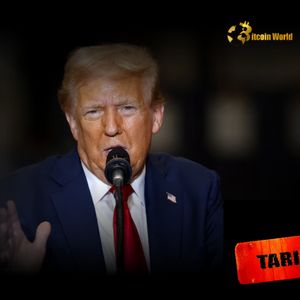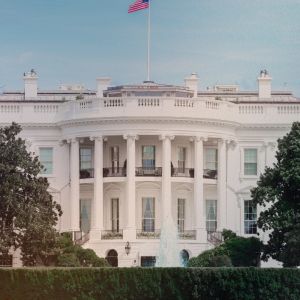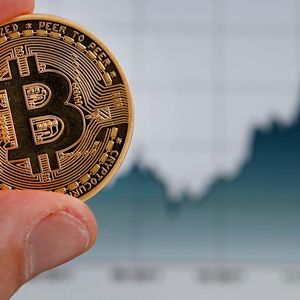BitcoinWorld Warning: Section 301 Tariffs Could Expand, Adding to Global Uncertainty In the complex world of global economics and politics, shifts in trade policy can send ripples across markets far and wide. While not directly about Bitcoin or blockchain, recent comments from the U.S. Trade Representative regarding Section 301 tariffs are a key development worth watching for anyone invested in assets sensitive to macroeconomic shifts and global uncertainty – including cryptocurrency. What Are Section 301 Tariffs and Why Are They Relevant Now? Section 301 of the Trade Act of 1974 is a powerful tool in the arsenal of US trade policy . Essentially, it grants the U.S. government the authority to investigate and respond to unfair or discriminatory trade practices by foreign countries that harm U.S. commerce. This can include imposing tariffs, quotas, or other restrictions. The most prominent recent use of Section 301 was during the first Trump administration, leading to significant tariffs placed on a wide range of goods imported from China. These actions were part of what became known as the ‘trade war’ between the two economic giants. Now, the conversation is back in the spotlight. Jamison Greer, the U.S. Trade Representative, has indicated that the scope of these Section 301 tariffs could be expanded if deemed necessary. This suggests that the current administration is prepared to use this tool aggressively, potentially targeting more goods or different sectors, should trade disputes escalate. The context for this statement is underscored by former President Donald Trump’s recent assertion that China has ‘completely violated’ its previous tariff agreements with the U.S., signaling continued tension. How Could Expanding China Tariffs Impact the Global Landscape? The potential expansion of China tariffs isn’t just a matter for trade economists; it has broader implications that can influence investor sentiment globally. Here’s why: Supply Chain Disruptions: New or increased tariffs can force businesses to rethink their sourcing and manufacturing strategies, leading to higher costs and potential delays. Increased Costs for Consumers: Tariffs are taxes on imports, which are often passed on to consumers in the form of higher prices for goods. Retaliation Risks: Countries targeted by Section 301 tariffs, particularly China, may retaliate with their own tariffs or trade barriers, further escalating tensions and harming businesses on both sides. Reduced Global Trade Volume: A full-blown trade war can stifle international commerce, reducing economic activity worldwide. Currency Fluctuations: Trade disputes can impact currency exchange rates as countries potentially devalue their currencies to make exports cheaper or react to economic uncertainty. These factors contribute significantly to market volatility and economic uncertainty. Why Should Crypto Investors Care About US Trade Policy? While crypto markets operate 24/7 and are influenced by their own unique dynamics (like adoption rates, technological developments, and regulatory news), they are not immune to macro-level events. Here’s the connection: Safe-Haven Narrative: In times of heightened geopolitical risk and economic uncertainty, some investors look for alternative assets outside traditional financial systems. Bitcoin, often dubbed ‘digital gold,’ is sometimes seen as a potential hedge against such instability, though its volatility means it’s not a traditional safe haven. Liquidity Flows: Major shifts in global markets, triggered by events like escalating trade wars, can impact overall investor sentiment and capital flows. If traditional markets face headwinds, some capital might seek refuge elsewhere, potentially benefiting crypto, or conversely, a broad risk-off sentiment could lead to sell-offs across all asset classes, including crypto. Inflation Concerns: Tariffs can be inflationary. If investors become concerned about rising inflation due to trade policies or other factors, assets perceived as inflation hedges, like Bitcoin, might see increased interest. Economic Growth Impact: A slowdown in global economic growth due to trade tensions could eventually impact disposable income and investment appetite, which might indirectly affect the crypto market. The potential for expanding Section 301 tariffs adds another layer to the existing complex global economic picture, contributing to a climate of global uncertainty that crypto investors frequently monitor. What Does This Mean Moving Forward? The statement from the U.S. Trade Representative signals that trade policy remains a live issue and a potential source of market volatility. While it doesn’t guarantee an expansion of tariffs, it keeps the option firmly on the table. For crypto investors, this serves as a reminder that macroeconomic factors and geopolitical events, even those seemingly unrelated to digital assets, can play a role in shaping market sentiment and potentially influencing price movements. Staying informed about developments in US trade policy and understanding their potential broader economic impacts is crucial for navigating markets in an increasingly interconnected world. The discussion around China tariffs and the potential for a renewed trade war adds to the background noise of global uncertainty that continues to influence investment decisions across the board. To learn more about the latest crypto market trends, explore our articles on key developments shaping Bitcoin and other cryptocurrencies’ price action and institutional adoption. This post Warning: Section 301 Tariffs Could Expand, Adding to Global Uncertainty first appeared on BitcoinWorld and is written by Editorial Team















